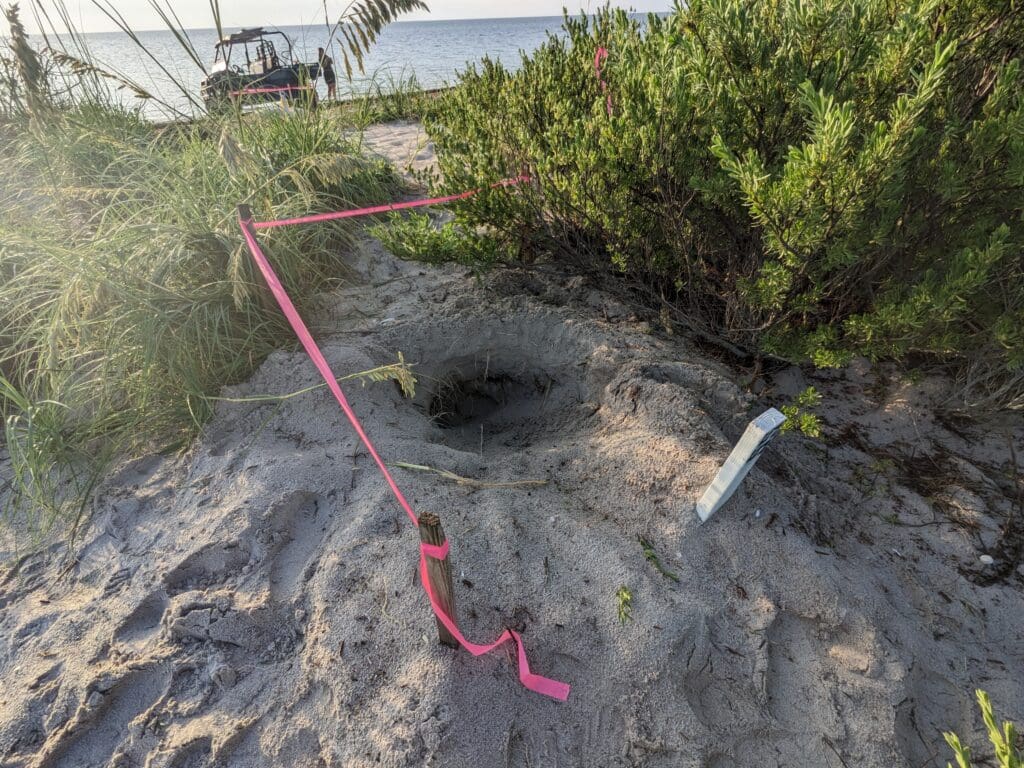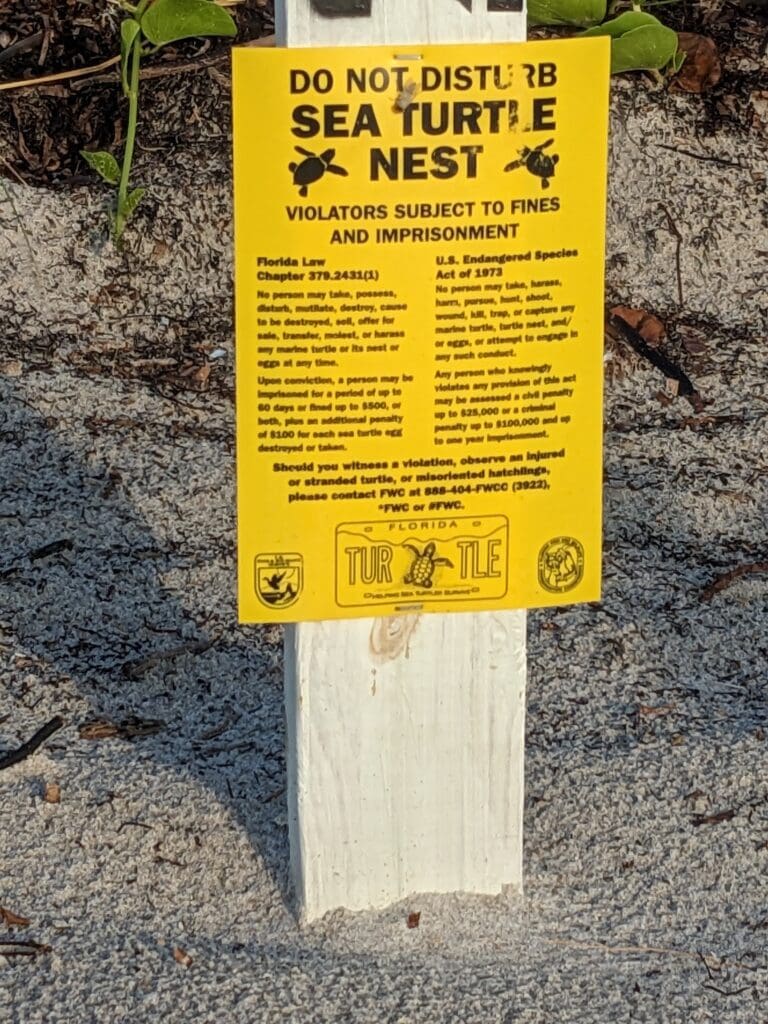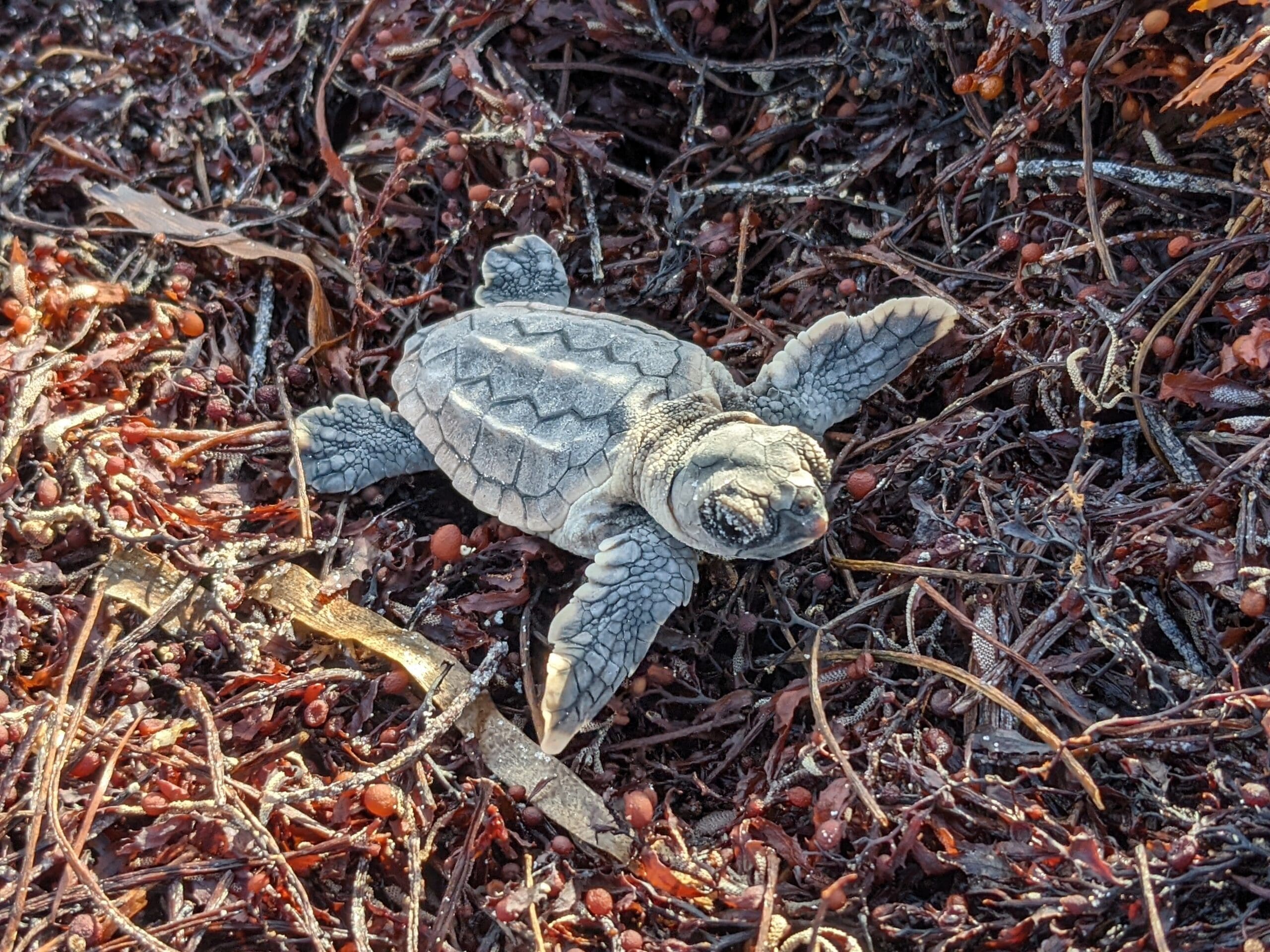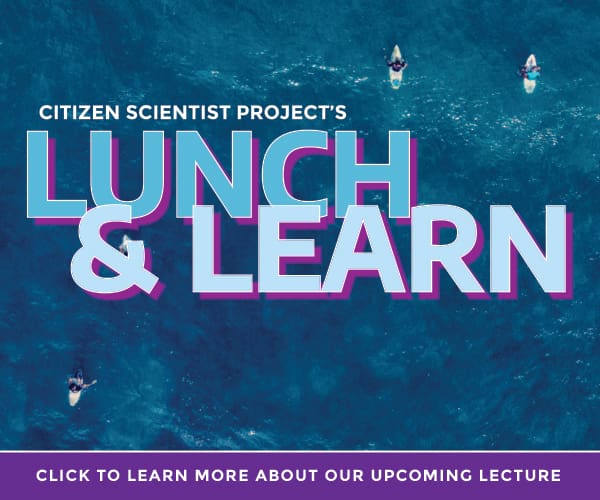A endangered Loggerhead sea turtle nest at Bill Baggs Cape Florida State Park was found plundered by poachers.
Park Biologist Elizabeth Golden and Park Ranger Shane Zigler discovered the empty nest on Wednesday as they made their rounds in the early morning hours. It was one of the newer nests that had just been marked two days earlier.
A large hole burrowing into the nest chamber revealed all the eggs had been removed.
“Unlike most of the other nests which are on the open beach, [this nest] was mostly hidden from view due to the surrounding vegetation,” Golden said. “I think that the poacher took advantage of this fact.”
Invest in Local News for Your Town. Your Gift is tax-deductible
Sea turtles and their eggs were once poached to near extinction in the 1950s and 1960s until it was made illegal in 1970. Conservationists have worked extremely hard to bring them back from the brink since then.

Golden and Zigler found the emptied nest while making their rounds checking nests from south to north on the beach. Once finished, having marked a few new nests, they headed south again to check all the previously marked nests for any signs of activity and encountered one that had been disturbed.
Usually, the poachers of sea turtle nests are not human. Natural predators, particularly raccoons, will prey on eggs and dig up nests. They will generally destroy and consume the eggs on the spot. Animals leave the telltale sign of broken egg shells at the scene.
Human activity shows the careful removal of stakes and tape protecting the outlines of the nest – a task wild animals could not perform. The poached nest had a clean area surrounding a pit where the egg chamber had been.
There are clear signage that it is illegal to disturb sea turtle nests.

All five species of sea turtles found in Florida waters are protected by the Federal Endangered Species Act, making it illegal to “take, harass, harm, pursue, hunt, shoot, wound, kill, trap, or capture any marine turtle, turtle nest, and/or eggs, or attempt to engage in any such conduct.”
Punishment for digging up a nest, such as this loggerhead turtle’s nest at Bill Baggs, can lead to a fine of up to $100,000 and one year in jail under federal law.
It is also considered a felony under Florida state law and can result in a fine of up $100 per egg found in a person’s possession.
Sea turtle eggs start developing within a few hours of being laid. Any disturbance, even within the first 24 hours, can affect the hatchlings’ survival.
In 2022, one study published in Frontiers in Ecology and Evolution found that olive Ridley sea turtle hatchlings from undisturbed nests were slightly larger, had more neuron development in their brain, and better motor skills than hatchlings from nests that had been relocated to a protected hatchery.
Golden immediately contacted the Florida Wildlife Conservation Commission to report the poaching. She also reached out to the park staff and volunteer turtle nest evaluators.
She said the plan is to put more precautions and safeguards in place to protect the nests and increase beach patrols.
Poaching sea turtle eggs is very uncommon on Key Biscayne, but Golden said she wants to make sure that it goes from “rare to never.”
There was some good news. On Thursday morning, monitors discovered that a Leatherback had nested. The Leatherback is the largest of sea turtles that can grow as long as six feet and weigh as much as 2,000 pounds. It was the first Leatherback nest to be found at Bill Baggs nearly 10 years.
If you see any suspicious activity involving sea turtles, hatchlings, or nests, call the FWC Wildlife Alert line at (888) 404-3922.
An earlier version of this story reported the nest was discovered on Monday. It was discovered poached on Wednesday.

Rumya Sundaram
RUMYA SUNDARAM is the environmental editor of the Key Biscayne Independent. She is also the director of environmental science for the Key Biscayne Community Foundation.


